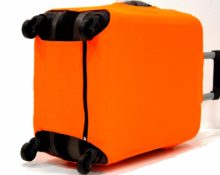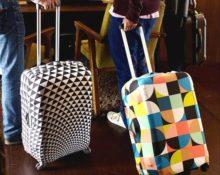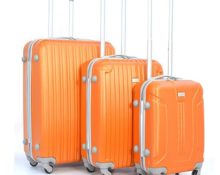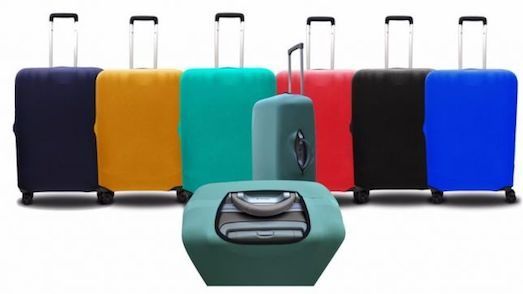 It is impossible to imagine a tourist trip, a long flight or a business trip without the main accompaniment - a suitcase. It helps to transport necessary things over the longest distances. For frequent flights, it is recommended to provide your suitcase with an additional accessory - a cover.
It is impossible to imagine a tourist trip, a long flight or a business trip without the main accompaniment - a suitcase. It helps to transport necessary things over the longest distances. For frequent flights, it is recommended to provide your suitcase with an additional accessory - a cover.
Why do you need a cover on a suitcase?
First of all, the case performs the function of protective packaging. When transported on an airplane, train or bus, the risk of damage to the surface of the product, its locks and other components increases. The presence of a cover completely eliminates this possibility. In addition, additional packaging will help protect the bag from dirt, dust and environmental precipitation.
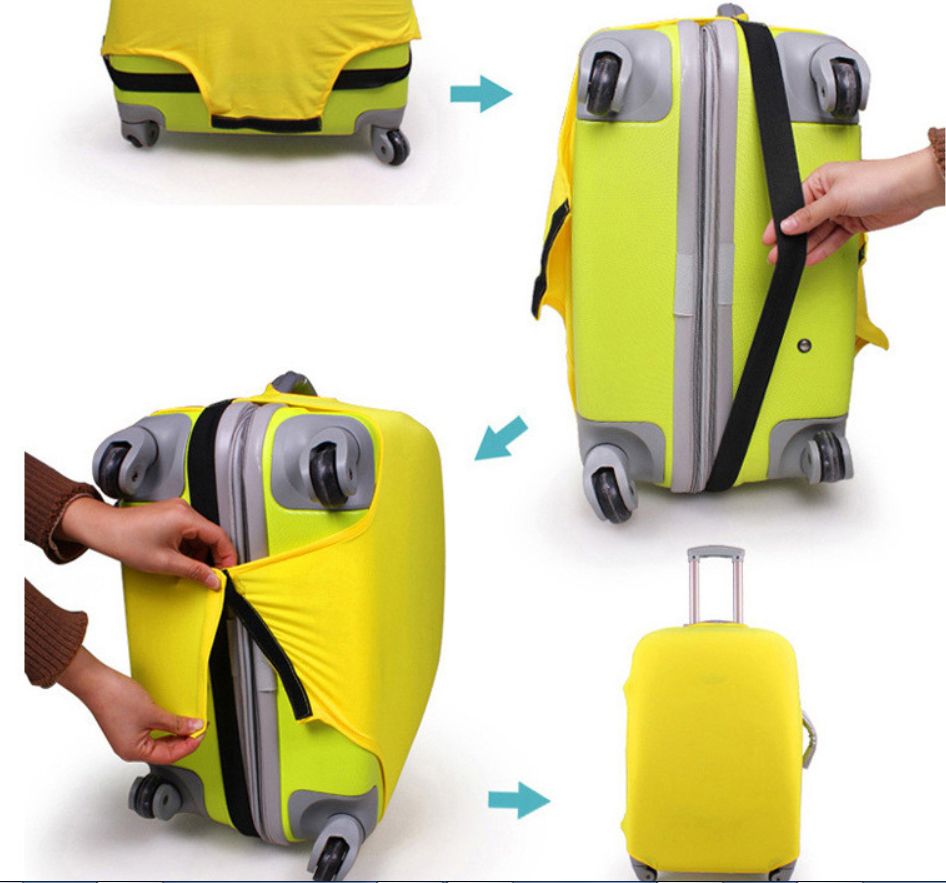
Users note that suitcases packed in covers are much less likely to be targeted by scammers and thieves. Additional locks and buttons complicate access to the owner's personal belongings. Therefore, attackers focus on suitcases and bags that are not equipped with additional covering.
Every avid traveler knows that when visiting the airport it is necessary to pack your luggage with protective disposable film. If you pack your luggage in a cover, there is no such need. The cost of packing a suitcase with film is not low, which means that the presence of a cover on the bag guarantees a small saving of money.
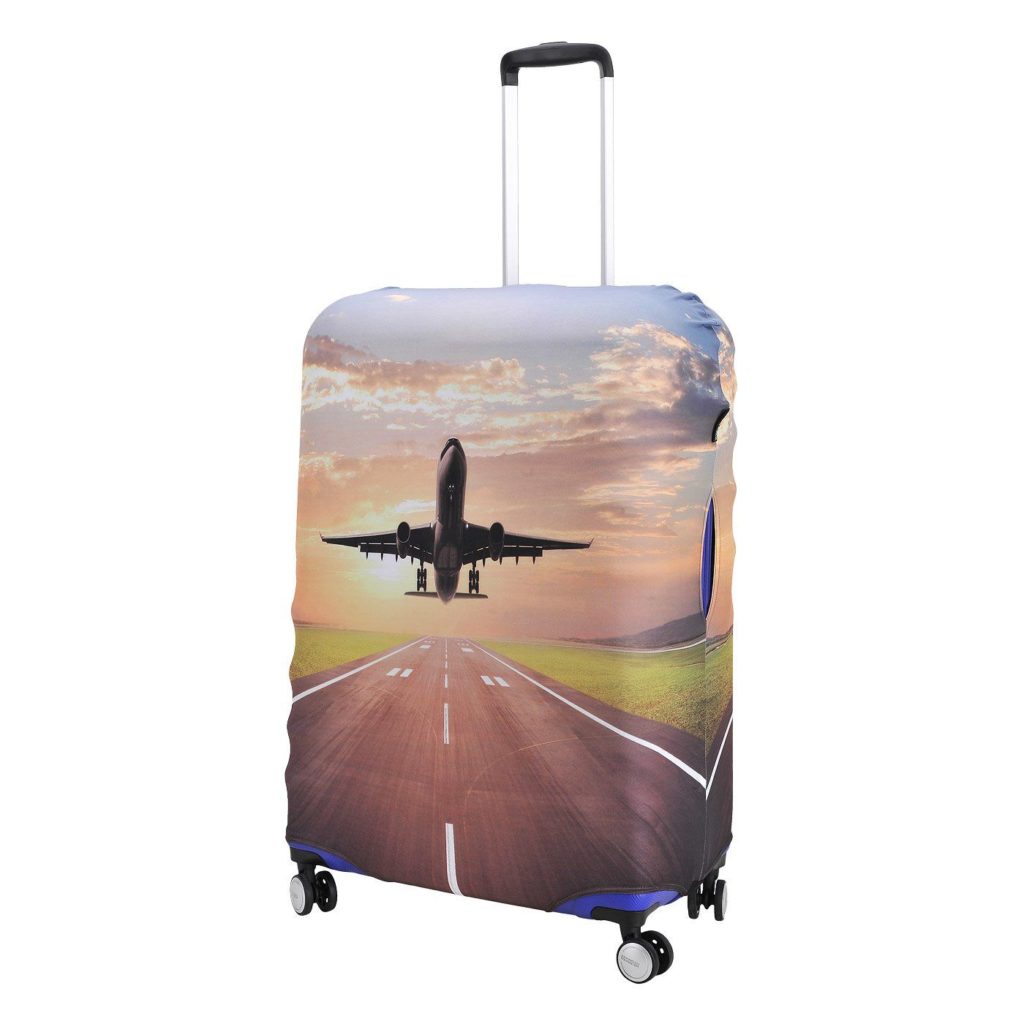 The range of protective packaging on the modern market is quite wide. By purchasing a bright product, the owner reduces the possibility of leaving the airport in a hurry with someone else's luggage. An individual model will stand out among other travel bags and will help you easily find the necessary suitcase.
The range of protective packaging on the modern market is quite wide. By purchasing a bright product, the owner reduces the possibility of leaving the airport in a hurry with someone else's luggage. An individual model will stand out among other travel bags and will help you easily find the necessary suitcase.
Reference! Sellers recommend purchasing a protective case along with the suitcase.
Depending on the suitcase model and material of manufacture
Manufacturers offer a huge selection of materials from which suitcases and travel bags are made. With frequent flights and trips, the coatings are subject to serious damage, which leads to the urgent purchase of a new product. The cover helps extend the service life and maintain an attractive appearance.
Popular materials:
- Plastic is one of the most popular. It protects packaged items from aggressive environmental influences. The downside is its instability: chips, cracks and scratches appear on the surface after just a few trips. This looks especially unaesthetic on models with bright colors.
- Suede can transform any product, including a suitcase. The disadvantage of this material is that it allows moisture to pass through well and is not resistant to dust and dirt. If the owner of a suede product gets caught in rain or snow, the risk that the items will become wet increases.In addition, dust and other contaminants will accumulate on the surface, which will significantly worsen the appearance.
- Leather or leatherette are also very popular. There may be a risk of damage to the outer surface of the product when placed in special transportation compartments. These may be cracks, scratches or holes. In this case, it becomes impossible to continue use.
Thus, a protective cover is extremely important for any suitcase.
Reference! The most rarely used materials include fabric.
Is necessity important?
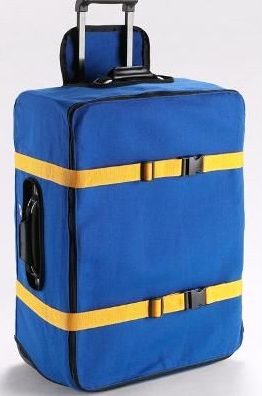
Before purchasing any product, in order to better understand why and how to use it, every consumer tries to read user reviews. By reading comments from people whose lives are connected with regular flights, you can find out the necessary information.
Many call protective packaging an “essential necessity.” Among the uses, only the advantages stand out: additional protection, saving money, a way to express your individuality. Beginner travelers are first recommended to purchase this product.
Conclusion
Almost every person strives to travel and visit unexplored corners of the planet. You should prepare thoroughly for a flight to another country: this applies not only to studying the culture and mentality of a country or continent, but also to ensuring the protection and safety of personal belongings. The protective case will be an excellent “guard” for each suitcase and a faithful assistant to its owner.


 0
0